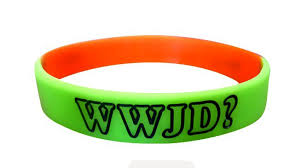|
You gotta understand. I live in the Deep South, in the buckle of the Bible Belt, and this question is Important with a capital "I" to a lot of folk. And I get it. A sincere Christian wants to honor God in every aspect of life, and most of us who grew up Baptist or Pentecostal or even Episcopalian didn't also grow up with henna. Thus the question ... is it okay to wear henna? Usually when people ask this question, they have one of two issues on their minds:
So, let's tackle these one by one. 1. No — henna is not a religious practice.It's easy to see where the confusion comes from. A person Googles henna (also known as mehndi) and sees a photo like this: And it's easy to think, Oh! A Hindu bride. Henna must be a Hindu practice. And it can be ... if you're Hindu. Ironically, the model in this photograph is actually Muslim — and Muslims worldwide use henna, too. Henna is a beautification practice that has crossed many national, ethnic and religious lines since it was first cultivated in the Middle East at least 6,000 years ago. The reason why most people associate henna with Hindus or Muslims is simply an accident of geography: The parts of the world where most henna is grown happens to be mostly Hindu or Muslim: northern Africa, the Arabian Peninsula and the northern Indian subcontinent. Jewish, Sikh, Jain, Christian and many other religious groups in these regions also use henna. So if you're a Christian and want henna, you're in good company. Many Christians in Armenia, India, Palestine and other places in the world wear henna. It's simply a part of celebrating life! 2. No — henna does not violate Leviticus 19 (in my opinion)."Do not cut your bodies for the dead or put tattoo marks on yourselves. I am the Lord." Leviticus 19:28 (NIV) As some of you know, I get annoyed when people use the term "henna tattoo." Technically, henna is not a tattoo — a tattoo is the surgical implantation of ink in the skin to create a permanent design. Henna is its own art form — it has its own history and was not developed as a way to copy ink tattoos.
Historically, henna and ink tattooing have not been considered the same thing. Henna is widely practiced among Jews and Muslims even though Islam and Judaism both prohibit ink tattoos. (There are practicing Muslims and Jews with ink as well as imams and rabbis who argue against henna, but for the most part, neither Islam nor Judaism considers henna to violate Leviticus.) But what about Christianity? Let's take a moment and look at the purpose of Leviticus. The book is a collection of laws and regulations that Moses delivered to the ancient Hebrew people. The Levites — the priestly tribe — not only served as ancient Israel's religious leaders, they also were the police, the health department, the court system, etc. Israel was a theocracy, and the Levitical laws governed just about every aspect of everyday life in ancient Israel. Let's take a look at some of the other laws mentioned in chapter 19 ...
So ... do you wear cotton/polyester fabric? Eat your steak rare? Trim your sideburns? Almost no modern Christian considers these rules to be binding today. (A lot of modern Jews don't consider them binding, either.) And the vast majority of Christians I know also eat bacon and shrimp — two things that are very much no-nos according to Leviticus. So, what's the problem with ink tattoos in the first place? Tattooing is actually an important part of Coptic Christianity. For centuries, the Egyptian Copts have tattooed crosses on the inner wrist as an expression of their faith. They were originally tattooed against their will to be "marked" as Christians (much like Jews in Germany being forced to wear Stars of David), but now they are embracing the tattoos as a potent statement of faith. They are a religious minority in Egypt and have actually experienced persecution because of their tattoos. But back to our culture ... For much of our western history, tattoos were the mark of "rough people": criminals, sailors, sideshow performers. No respectable person would be caught dead with a tattoo. It was a cultural prejudice that found a convenient justification in Leviticus. At least, that's my opinion. Now, of course, tattooing is mainstream. The U.S. has 20,000 tattoo studios, and the number of tattooed Americans is growing. Today, some 30 percent of college graduates are tattooed. So, with the cultural stigma falling away, is it time for Christianity to rethink its stance about tattoos? If a person has a sincere religious belief that ink tattooing — or henna — is wrong, I respect that. I'm not here to twist anyone's arm or violate their conscience. But from what I know about henna's history and culture, I don't think getting henna should worry a sincere Christian. I have hennaed lots of crosses, fish and Bible verses, and I welcome any client who wants to incorporate henna as a statement of their faith, whatever that faith may be. But ultimately, it's up to you. What do you think? Let me know in the comments below. :) Comments are closed.
|
Amy MillerHenna artist, traveler, alchemist. Archives
June 2024
Categories
All
|


 RSS Feed
RSS Feed